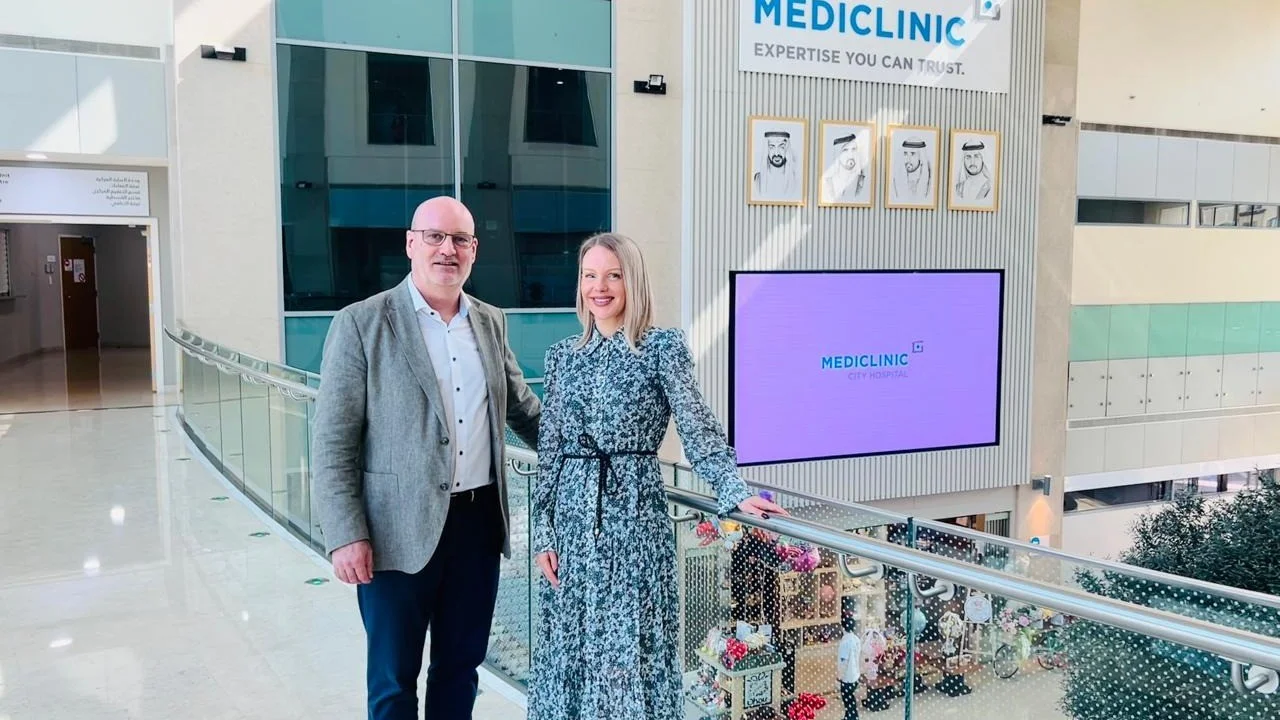In our recent interview with Dr. John Duff, a neurosurgeon at Mediclinic City Hospital Dubai, we learned that Dr. John Duff is a US Board-certified neurosurgeon with a subspecialism in skull base and spinal surgery. His particular areas of interest are minimally invasive spinal surgery, craniovertebral junction surgery, and cervical spine surgery with 3D image guidance. Following his extensive training, Dr. Duff was a consultant neurosurgeon in the USA and Switzerland for many years before relocating to the United Arab Emirates in August 2024. He is very active in academic circles as an international conference speaker. He is also a former chair of the Spine Section of the European Association of Neurosurgical Societies (EANS). Dr. Duff has extensive peer-reviewed journal publications in his field and is a US patent holder of a surgical robot.
At Allocation Assist, we like to keep in touch with our doctors after they relocate. It was great to catch up with Dr. John and learn about his subspecialty and experiences since moving to Dubai.
Can you start by talking about your training and experience in different countries?
Sure, I did medical school in Dublin, Ireland, where I am from. Then, I worked in Dublin for a year before moving to the USA to pursue my specialist training. I trained in general surgery for 2 years at the John Hopkins Hospital in Baltimore. Then, I was offered the chance to do my neurosurgery training as a resident at the world-renowned Mayo Clinic in Rochester, Minnesota.
Following this, I completed a 2-year fellowship in complex spinal surgery in Switzerland. I also did a fellowship in skull base surgery at the George Washington University Hospital in Washington, D.C. I then worked for 3 years as a neurosurgery consultant at New England Medical Center in Boston, Massachusetts. There, I was also appointed as an assistant professor at New England Medical Center, Tufts University.
In 2004, I was asked to consider a job offer at Lausanne University Hospital in Switzerland, where I had previously done a fellowship. So, I relocated with my family to Switzerland, where I worked for 20 years in total. This includes some time in private practice before moving to Dubai in August 2024.
Dr. John Duff, why did you decide to relocate to Dubai?
After a long time working in the same place, I was seeking a new challenge. I also wanted the chance to experience another part of the world and work in a different healthcare system. I had received a position offer in Dubai some years earlier but didn’t take it at that time. Our teenage children were in the middle of secondary school and exams, so it was difficult to move. The UAE has a growing population with a dynamic healthcare system. There was a need for my specialist surgical skills here, with scope to develop new services.
How have you found the transition to working in Dubai?
Whenever you move to a new place, there is always a transition. It takes some time to adjust to a different system, but I am settling in well. Having worked in the USA, there are some similarities to the American healthcare system, which has made the adjustment easier. One challenge I have found is that the system for referrals could be more streamlined. While it is still early days, I am getting busier, seeing more and more patients and scheduling more surgeries. As well as my areas of interest, I also cover trauma and the stroke service when on-call.
Mediclinic has a designated stroke center, accredited by the American Stroke Association, which takes referrals from other hospitals. I find that we see a higher incidence of stroke in relatively young men in their 40s. There is a need for greater awareness on stroke prevention, in terms of healthy lifestyle changes. People need to control hypertension, which is known as the ‘silent killer.’
How has neurosurgery changed over the years?
Neurosurgery has changed a lot over the last 20 years or so. More neurosurgeons are subspecializing in either cranial or spinal surgery. There is a benefit to this. You need to do a higher volume of specialized and complex surgeries to become skilled in these. Also, the need for cranial surgery is decreasing. New, less invasive interventional procedures, such as radiosurgery for benign brain tumors and new aneurysm treatments, can often be used to prevent the need for open brain surgery. However, open cranial surgery is still required for some cases, such as malignant tumors, brain hemorrhages, and some trauma. Spinal surgery is developing due to recent innovations, and there is a need to stay up-to-date with new technologies.
Dr. John, can you tell us a bit more about new technologies for spinal surgery?
Spinal surgery is an exciting subspecialty, and technology is accelerating rapidly. I use 3D exoscopic image guidance for navigated bone or tumor resections for minimally invasive surgery. This involves looking at a screen while operating. This enables improved visualization and precision for spinal surgery, where the margins are extremely fine, to avoid damage to nerves and blood vessels or the spinal cord. There are also new implant materials available that enable more sophisticated spinal reconstruction.
I have used robotic surgery. While in Switzerland, I was part of a team that developed a new Excelsius robotic system for minimally invasive spine surgery, for which I am a patent holder. I hope to bring this to the UAE in the future. Another exciting new area is the use of virtual reality (VR) in spine surgery, which has been pioneered in the USA. This fuses images from CT and MRI scans of bone and soft tissue to create a 3D overlay, which is viewed through a VR headset. The surgeon can then virtually see the precise position of the spine and any tumor even before making a skin incision. This overlay can be used as a guide throughout the procedure.
How do you find working at Mediclinic City Hospital?
I enjoy working at Mediclinic City Hospital. There is a friendly atmosphere, and the staff supports each other to do their very best for patients. Mediclinic has a great reputation and management with very efficient IT systems for administration. All computer-based medical records, pharmacy, billing, and insurance are seamlessly connected. In our department, we have 4 neurosurgeons with different special interests. There is scope for expansion in the future.
What about life outside work?
I am settling into life here. Dubai is a vibrant city but obviously different from living in Switzerland. I live in a nice apartment close to Downtown Dubai that has a gym and pool in the building. There are malls, shops, and restaurants nearby, and everything is convenient. My wife is hoping to join me here as soon as possible. Our children are now grown up and living in different places but will come and visit. I am happy I made the move and am looking forward to what the future holds.
Read More:



